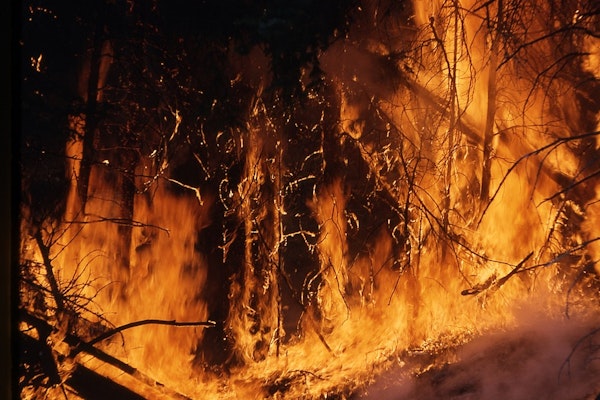
P/C Industry Nets $34.9B Underwriting Gain as Cat Losses Ease in 2025
AM Best reports a sharp recovery in P/C insurer profitability for 2025, helped by lower catastrophe losses and improved reserve development.
December 29, 2025
Auto
Catastrophe
Insurance Industry
Liability
Property

California Wildfires, Premium Hikes, and the New Economics of Homeowners Insurance
Catastrophe losses, inflation, and construction costs are squeezing insurers and driving up homeowner premiums—putting more pressure on claims professionals.
December 29, 2025
Catastrophe
Insurance Industry
Legislation & Regulation
Property
Risk Management

Cyber, Casualty, and Climate Shape 2026 Reinsurance Dynamics
Reinsurance capacity surged in 2025 amid historic low catastrophe losses, driving down rates and changing the risk-sharing landscape. Adjusters can expect shifts in how insurers deploy capital, respond to claims, and design coverages—especially in casualty, cyber, and catastrophe-exposed regions.
December 29, 2025
Catastrophe
Excess & Surplus Lines
Insurance Industry
Legislation & Regulation
Liability

Florida Courts Fix Repair Costs at Breach Date in Construction Defect Cases
Florida courts consistently measure construction defect damages from the date of breach, regardless of defect type or legal theory. This rule holds key implications for claims handling and litigation strategy.
December 29, 2025
Insurance Industry
Legislation & Regulation
Litigation
Property
Florida

Wild Pigs Cost Mississippi Farmers Millions Annually Despite State Trapping Efforts
Feral hogs cause massive crop losses and property damage, prompting state-supported trapping and control programs. For claims professionals, the risks tied to agricultural policies are escalating.
December 29, 2025
Catastrophe
Insurance Industry
Property
Risk Management
Underwriting
Mississippi

Top Holiday Risks Driving Property and Auto Insurance Claims
Frozen pipes, kitchen fires, icy walkways, and parking lot crashes make winter the busiest season for property and auto insurance claims. Here’s how adjusters can prepare.
December 22, 2025
Auto
Catastrophe
Fraud
Insurance Industry
Liability
Alaska
Maine
Minnesota

Subrogation Best Practices for Claims Adjusters and Counsel
Experts share real-world strategies for identifying and managing subrogation opportunities, emphasizing early action and collaboration.
December 22, 2025
Education & Training
Litigation
Risk Management
Subrogation

California Marijuana Law Complicates Intoxication Defense in Work Injury Claims
Courts require more than a positive THC test to prove workplace marijuana impairment. Here’s what claims adjusters need to know post-AB 2188.
December 22, 2025
Fraud
Legislation & Regulation
Litigation
Risk Management
Workers' Compensation
California

CHP Officer in California Sentenced for Workers’ Comp Fraud After Disability Claim Unravels
A California officer faked a disabling injury while collecting benefits, only to be caught performing manual labor on his property. The case underscores the vigilance required in high-risk workers’ comp claims.
December 22, 2025
Fraud
Insurance Industry
Legislation & Regulation
Litigation
Workers' Compensation
California

Minnesota Jury Awards $65.5M in Johnson & Johnson Talc-Asbestos Cancer Case
A Minnesota woman was awarded $65.5 million after a jury linked her mesothelioma to long-term use of Johnson & Johnson’s talcum powder. The company plans to appeal.
December 22, 2025
Insurance Industry
Liability
Life & Health
Litigation
Risk Management
California
Minnesota

Ford Recalls 272,000+ Vehicles for Rollaway Risk Tied to Faulty Park Module
Faulty park module in F-150 Lightning, Mustang Mach-E, and Maverick hybrids poses serious rollaway danger. Software fix planned despite hardware flaw.
December 22, 2025
Auto
Liability
Litigation
Risk Management
Subrogation

AI Exclusions in Insurance Spark Coverage Uncertainty Beyond Cyber Policies
AI-related policy exclusions are showing up in D&O and E&O lines, raising red flags for adjusters assessing risk and coverage clarity.
December 22, 2025
Legislation & Regulation
Risk Management
Technology

Visa, Mastercard Settle ATM Fee Lawsuit for $167.5M Over Alleged Price-Fixing
The settlement resolves long-running claims of inflated ATM access fees affecting millions of consumers. A related lawsuit by ATM operators remains pending.
December 22, 2025
Insurance Industry
Legislation & Regulation
Litigation
Risk Management
District Of Columbia

How Elastic Staffing Helps Insurers Handle Claim Surges and CAT Events
Carriers are rethinking claims and underwriting operations to meet volatile demand and rising costs. Elastic Staffing blends core leadership with vendor and tech support to create scalable, efficient teams.
December 22, 2025
Catastrophe
Insurance Industry
Risk Management
Technology
Underwriting

Wildfires and Hailstorms Drive $100B in Insured Losses Again in 2025
The 2025 Los Angeles wildfire was the costliest ever, but quieter, relentless storms caused even more damage nationwide. The result is soaring insurance costs and shrinking coverage options.
December 22, 2025
Catastrophe
Insurance Industry
Property
Risk Management
Underwriting
California
Florida
Texas





